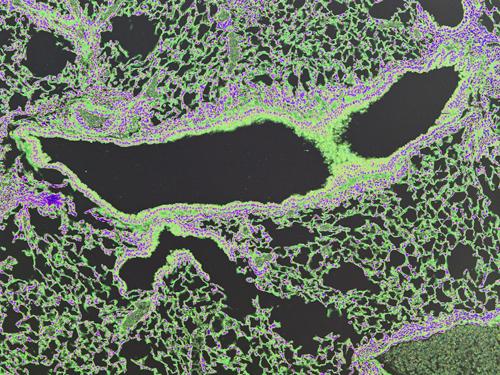
Dr. Laurel Monticelli
Published today, April 4, 2016, in Nature Immunology, research from the Artis Lab, leading a five-institution collaboration, has uncovered a pivotal finding implicating a metabolic pathway that promotes allergic inflammation in the lung. The groundbreaking studies identify that an enzyme, Arginase-1, changes the metabolism within ILCs, a recently identified class of innate immune cells. Dr. Laurel Monticelli, first author and a postdoctoral associate in the Artis Lab, used a genetically engineered mouse model to identify that when Arginase-1 is deleted, there is a significant reduction in allergic inflammation in the airways.
It was shown that by selectively removing the enzyme Arginase-1 from ILCs, the loss of this metabolic pathway shuts down ILC responses and allergic inflammation in the lung. Building on this mechanistic advance, the researchers also employed a patient-based study that examined lung tissue samples taken from patients with chronic inflammatory lung diseases; specifically, COPD and IPF. Arginase-1 was found to be expressed in ILCs in the patients' lung tissue samples, supporting the findings in the mouse model and thus implicating this metabolic pathway in human disease.

Color-enhanced histologic image of allergen-induced type 2 inflammation in mouse lungs. Image courtesy of Dr. Laurel Monticelli and Dr. David Artis
Dr. David Artis, Director of the Jill Roberts Institute for Research in IBD and the Michael Kors Professor of Immunology at Weill Cornell Medicine, looks forward to the next phase of discovery, which may lead to the design of more selective drugs that are specifically targeted to ILCs. Future therapies could offer treatment for a wide range of allergic diseases, as ILCs are implicated in diseases of the lungs as well as other organs of the body.

